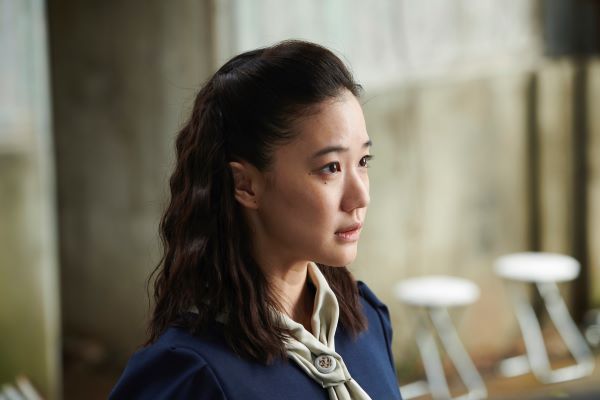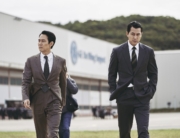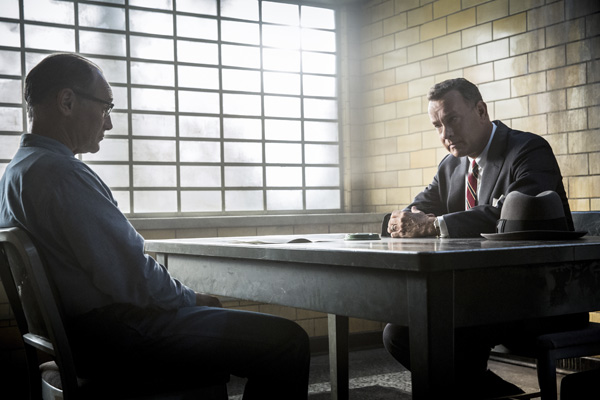
Over the course of a nearly four-decade filmmaking career, Kiyoshi Kurosawa has proven to be one of cinema’s most protean and versatile directors. Having gotten his start making softcore “pink” films and afterward transitioning into mainstream non-erotic features—not an unusual career path for Japanese filmmakers of his generation—he’s still most identified, at least in the West, with the J-horror films he made in the 1990s and early 2000s, such as Cure (1997), Pulse and Séance (both 2001), and Loft (2005).
However, Kurosawa has also produced works that exist well beyond the boundaries of that genre, for example the darkly comic thriller Doppelganger (2003) and the dramas License to Live (1998), Bright Future (2003), and Tokyo Sonata (2008), the latter a financial crisis parable that’s arguably his artistic pinnacle. In more recent years, Kurosawa’s eclecticism has often been at the expense of consistent quality. For every relatively successful work, such as the 2012 five-hour television miniseries Penance and the 2016 French-language twisted romance Daguerrotype, there are misfires like the dour, meandering ghost story Journey to the Shore (2015) and the ill-conceived alien invasion movie Before We Vanish (2017).
Kurosawa’s latest feature, Wife of a Spy, is his first period drama—like Penance, originally made for television—and his most artistically successful work in several years. The film takes its sweet time getting started, with a stiffly formal air and stately pace as the action begins in 1940 Kobe, just as Japan has invaded French Indochina and entered into the Axis alliance with Germany and Italy.
The narrative mostly centers on Yusaku (Issey Takahashi), who runs an international trading company, and his wife, Satoko (Yu Aoi), a homemaker and aspiring actress who’s currently starring in a homemade movie directed by her amateur filmmaker husband. They mostly eschew traditional attire and customs in favor of Western-style fashions and living. They’re warned by Satoko’s old childhood friend Taiji (Masahiro Higashide), now a rigidly doctrinaire military policeman, that such unorthodox attitudes could be politically dangerous in the current climate.
The first sign of a trouble comes when Yusaku’s British colleague is arrested on suspicion of being a spy. Shortly thereafter, Yusaku travels to Manchuria on a business trip, but his return is cloaked in ambiguously suspicious circumstances: he comes back to Japan with another woman surreptitiously in tow, who later turns up dead. Satoko learns about all this not from her husband but piecemeal from Taiji and others, making her question whether she really knows the man she’s married to.
The film is largely built on Satoko’s gradual political and personal awakening, as this seemingly shallow trophy wife transforms into a plucky and resourceful sleuth, drawing on reserves of intelligence and courage that even she may not have realized she had. The twisty, sinuously plotted story—contributed by Kurosawa’s former film students Ryusuke Hamaguchi (a significant director in his own right) and Tadashi Nohara—hinges on Yusaku’s discovery of wartime atrocities committed by Japan, evidence of which he plans to take to expose to the U.S. government. Even though Wife of a Spy isn’t technically a horror film, the creeping tension engendered by Yusaku and Satoko’s efforts to elude the authorities closing in on them is often reminiscent of Kurosawa’s previous work in that genre.
The old-fashioned, Hitchcockian espionage elements are a dissonant contrast with the hyper-real digital nature of its visual style. This also contributes to the off-kilter edginess of the film’s tone. The events of the narrative inexorably barrel toward chaos, destruction, and tragedy, but what remains constant is the indomitable Satoko, impeccably rendered by Aoi’s riveting, tour-de-force performance, who possesses a will and resilience far stronger than the men who supposedly control things in this extremely dark time.
















Leave A Comment